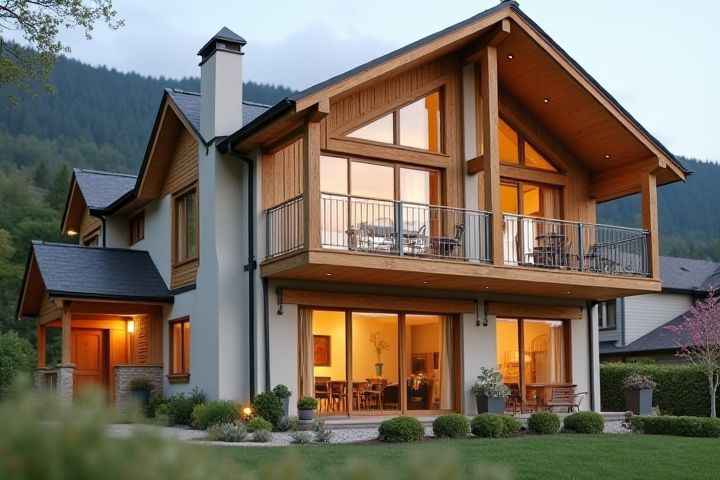
To renovate a house efficiently, first develop a comprehensive plan that identifies your budget and prioritizes essential improvements. Assess the structural integrity of the home; this ensures that any renovations align with safety standards and local building codes. Utilizing sustainable materials can enhance energy efficiency, which in turn reduces long-term costs and promotes environmentally friendly practices. Engage professional contractors for specialized tasks, such as electrical and plumbing work, to guarantee high-quality results while saving time. Finally, maintain clear communication with your team to ensure project timelines are met, allowing for a smooth renovation process from start to finish.
How To Renovate A House Efficiently
Set a realistic budget
Setting a realistic budget is crucial for an efficient house renovation. Begin by researching the average costs for materials, labor, and permits specific to your location, as this will provide a clearer financial framework. Factor in a contingency fund, typically around 10-20% of your total budget, to cover any unexpected expenses that may arise during the renovation process. By breaking down your budget into categories, such as kitchen upgrades, bathroom remodels, and exterior enhancements, you can maintain better control over spending and ensure that each aspect of your renovation aligns with your overall financial plan.
Prioritize renovations
Begin by assessing the current state of your home to identify structural issues that require immediate attention, such as roof repairs, plumbing upgrades, or electrical system replacements. Next, focus on key areas that enhance both functionality and aesthetics, prioritizing kitchens and bathrooms, which offer significant return on investment. Consider incorporating energy-efficient upgrades, such as new windows or insulation, to improve long-term savings and comfort. Finally, create a detailed renovation timeline and budget to ensure your efforts are organized, allowing for a smoother and more cost-effective renovation process.
Hire licensed professionals
Hiring licensed professionals is crucial for an efficient house renovation, ensuring that all work complies with local building codes and regulations. Licensed contractors possess the necessary expertise, experience, and training, which minimizes the risk of costly mistakes or delays. By selecting professionals such as electricians, plumbers, and architects, you can guarantee that specialized tasks are completed to the highest standards. This not only enhances the safety and integrity of your home but also adds value to your property in the long run.
Develop a detailed plan
Developing a detailed plan is crucial for renovating a house efficiently. Start by assessing the current structure, identifying areas that need repair or upgrade, such as plumbing, electrical systems, and insulation. Create a budget that outlines costs for materials, labor, and unexpected expenses while prioritizing essential renovations that enhance your home's functionality and value. Organizing a timeline with clear milestones helps ensure that each phase of the renovation stays on schedule, allowing you to manage resources effectively and minimize disruption to your daily life.
Obtain necessary permits
Before starting your renovation project, ensure you obtain the necessary permits, which can vary by location and scope of work. Research your local regulations to determine what permits are required, as failure to secure them can lead to fines or legal issues. Allocate time for processing permits, as this can take anywhere from a few days to several weeks, depending on the municipality. Engaging with a licensed contractor who is familiar with local building codes can streamline this process and ensure compliance, ultimately saving you time and money.
Focus on energy efficiency
Start by conducting an energy audit to identify areas where your home loses energy and assess insulation levels. Upgrading to Energy Star-rated appliances can save you up to 30% on energy costs, while replacing old windows with double or triple-glazed options improves thermal efficiency. Consider installing a programmable thermostat to optimize heating and cooling, which can reduce energy use by about 10-30%. Incorporating renewable energy sources, like solar panels, may lead to a significant decrease in your utility bills and a reduction in carbon footprint.
Source quality materials
Selecting high-quality materials is crucial for a successful home renovation. Prioritize sourcing durable options like engineered hardwood flooring or fiber cement siding, which offer longevity and aesthetic appeal. Sustainable choices, such as reclaimed wood or low-VOC paints, not only enhance indoor air quality but also promote environmental responsibility. Ensure you consult with local suppliers and obtain samples to evaluate the texture and color, ensuring they match your home's style and your personal vision.
Utilize space effectively
To renovate a house efficiently, focus on maximizing space utilization in every room. Open floor plans can eliminate unnecessary walls, enhancing flow and making your home feel larger; converting attics or basements into usable living areas can add significant square footage. Implement multifunctional furniture, such as sofa beds or storage ottomans, to minimize clutter while increasing practicality. You should also consider vertical storage solutions, like tall shelves or wall-mounted cabinets, to draw the eye upward and free up valuable floor space.
Plan for unexpected issues
Planning for unexpected issues during a house renovation is crucial for maintaining efficiency and reducing stress. Start by creating a contingency budget, typically 10-20% of your total renovation costs, to cover unforeseen expenses like structural repairs or material shortages. Establish a timeline that includes buffer periods for potential delays caused by weather or contractor availability, ensuring that your project remains on track. Finally, regularly communicate with your contractors and suppliers to quickly address any emerging concerns and adjust your plans accordingly.
Adhere to timelines
To efficiently renovate a house, establish a detailed project timeline that outlines each phase, from initial planning to final walkthroughs. Assign specific deadlines for tasks such as demolition, structural work, and installations, ensuring that each phase aligns with your overall schedule. Utilize project management tools or applications to track progress and communicate effectively with contractors, laborers, and suppliers, keeping everyone accountable to their timelines. Regularly assess milestones and adjust as necessary, addressing any delays immediately to ensure that your renovation stays on course.
